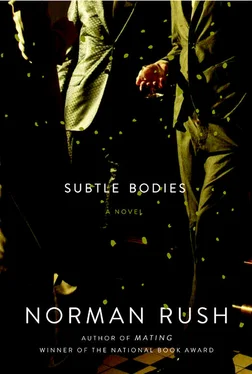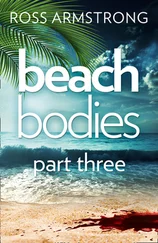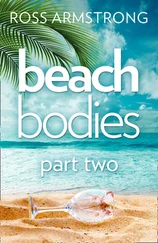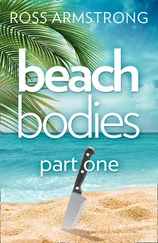One thing she knew and Ned did not, was that there is no permanent friendship between men, among men. Something goes wrong, somebody marries the wrong person, somebody advances too fast, somebody converts, somebody refuses good advice or bad advice, it didn’t matter. It went up in a flash, it went up in a flash like magnesium paper set on fire in a magic show. She thought, It’s not always great with women, either, but it can be. Women can have friends, it’s more personal, she thought. Although in the great design of things, women were getting to be more like men. There were more tough cookies around, and liars.
Well, Ned was her friend, her deep friend. He didn’t realize it, exactly. He thought everything was love with them, but it wasn’t. She would have been his friend whenever. It was a standard fantasy when you fell in love to imagine you could go back in time and find your beloved growing up, appear there, save him or her, get together as adolescents, by magic, and go on together, fighting for one another, into old age, never wavering. It was a pure friendship fantasy. Not sexual.
And that was why she was enraged at the man, enraged. She had to get this rage out of her, so she could kill him when she caught up with him. He was an idiot. He was reckless. He was hopeless. He had shit for brains. He couldn’t be counted on. He was a fool. These people had hurt him in the past, Douglas had. She only knew some of it.
She was moving around too much in her seat. The woman next to her was unhappy.
She offered the woman her uneaten dessert, an industrial brownie still in its packaging. Nina had watched the woman devour her own brownie in two bites, earlier.
“No,” said the woman, quite forcefully.
She thinks I’m affiliated with Satan, Nina thought.
His great friend was dead.
Ned wanted to embrace his dead friend. An imaginary burning feeling ran across Ned’s chest and down his arms. He wanted to embrace his friend. Where Douglas’s body was, even, Ned didn’t know. No clue whether it had been removed from the estate, no clue what shape it might be in wherever it was. Nobody could have gotten there from the West Coast any faster than he had. And still he was late. Except that when the call had finally come from Elliot, it had already been too late, whatever he meant by that. He meant something. Your thinking is choppy, he thought.
Douglas had died when his riding mower had pitched him down into a ravine, the mower on top of him, when the ground at the edge had given way. So he had been buried once already.
These were the Catskills, all around. The upward road he was walking on ran through terrain jammed with trees still dripping from a monster rainstorm he had just missed. It was trees, trees, and glimpses of hills farther off, also burdened with trees, as Douglas might have put it. The ruts in the unpaved road were running like brooks. It was all uphill. There were regular trees in their last leaf, intermixed with unwelcoming, bristling evergreens. It was four in the afternoon.
It was muggy. This was not where he would choose to die, in a ditch in this vicinity. What had Douglas seen, dying, his neck broken and mud sliding over him? No friend near, no one around, black mud engulfing him.
Ned shrugged off his rucksack and, holding it against his chest to give his shoulders a break, continued on. He had brought too much reading matter and had so far only managed to get cursorily through three recent issues of The Economist . That had been during the San Francisco — to — Houston leg of the trip, before guilt had shut him down. He was agitated about the war that was coming and guilty that he’d been forced to drop the little he was doing in the effort to stop it. There was going to be a march — the Convergence was what they were calling it — to protest the rush toward war in Iraq. It was looking immense. Feeder marches from all over Northern California would culminate in San Francisco. Contingents were coming from as far north as Yreka, for Christ’s sake. There was a coalition for the Convergence, his coalition. It was funny, the anarchists were the easiest to deal with and the Quakers were the most difficult. Oh and of course he felt like shit about leaving Nina with so little notice, and leaving exactly when the timing on their personal project was so critical. He couldn’t think about that.
He had come to a rude plank bridge across a gully occupied by a roaring brown torrent. Spray was coming up through gaps in the planking. The bridge meant that he was better than three-quarters of the way up the road to Douglas’s estate. He supposed it had to be called an estate. It did, after all, have a whole variety of buildings on the property, including a stone tower. And this had to be the bridge that some of the taxi services in the area would go no farther than when delivering visitors to Douglas’s. He had been given this piece of information by the Trailways driver when he dropped Ned on the highway between his scheduled stops. The driver had also mentioned the tower, and, overall, that the locals didn’t like Douglas, or hadn’t liked him.
Ned started across the bridge and then stopped. It came to him strongly that he needed a better idea of how he looked before he arrived, and there was no sign of a mirror in the roadway. His eyes itched. Visine , he needed. There was none in his toiletries. In fact, his toiletries amounted to a toothbrush and deodorant picked up in an airport shop.
Maybe he looked all right. He was wearing a new tan corduroy hacking jacket, a good blue dress shirt straight from the cleaners. Nina had found the jacket in a Junior League thrift shop she surveilled like a spy. He had all his hair, curly, graying, but still. Somebody in their group, he couldn’t remember who, had said it was a fact of life that people tended not to take people with curly hair seriously. But curly or not, he had his hair. He remembered that it was Douglas who had made the crack about curly hair. My weight is okay, one seventy-two is good, he thought. The Timberland boots he was wearing gave his five ten and a half a little help. Elliot was the tallest in their group, six four and an ectomorph. The boots had been purchased by Nina and never worn. She had a mission to get everything together they would need when they went camping at Stinson Beach. They were going to be serious about camping. They had gone once. Stinson Beach was a good choice for starters because it wasn’t that far from Berkeley. So camping there could fit neatly into weekends and not protrude into their insane work life. They wouldn’t burn up hours getting to where they were going to rusticate.
He kept calling Nina. At some point she was going to talk to him. And she would forgive him. Because she was forgiving. She would be getting deluged with calls for him, emails, faxes.
He should have brought a novel, plucked something from Nina’s shelves of uppermiddleclassics. She called them that. Something by Louis Auchincloss or Barbara Pym or Frederick Buechner or Thornton Wilder, people he was not uninterested in reading. He felt guilty over not reading a piece of worthwhile fiction when the constraints of travel made it a completely justifiable waste of time, which was not what he meant. He should have brought along something with a story to it. Well, he hadn’t. And he hadn’t really tried to pay attention to the Ulster County countryside, either. Why Douglas had chosen to settle in this particular part of the forest was a question. The bus trip had been a montage interrupted by naps and daydreaming: sharp hills, thick forests crowding down close to the road, motels and restaurants and trailer parks, an inner-tubing center, a splat-ball drome, gun shops, a pottery studio with a huge stucco golem in front holding a sign saying Feats of Clay. A lot of the businesses seemed to be shuttered. It was the end of September. Maybe everything was seasonal. And on the subject of not paying attention, he remembered a couple of years ago when they had been flying over the Rockies on a brilliant clear day and he had chided Nina for not paying attention to the grandeur below and she had said I find scenery beautiful but repetitive.
Читать дальше











